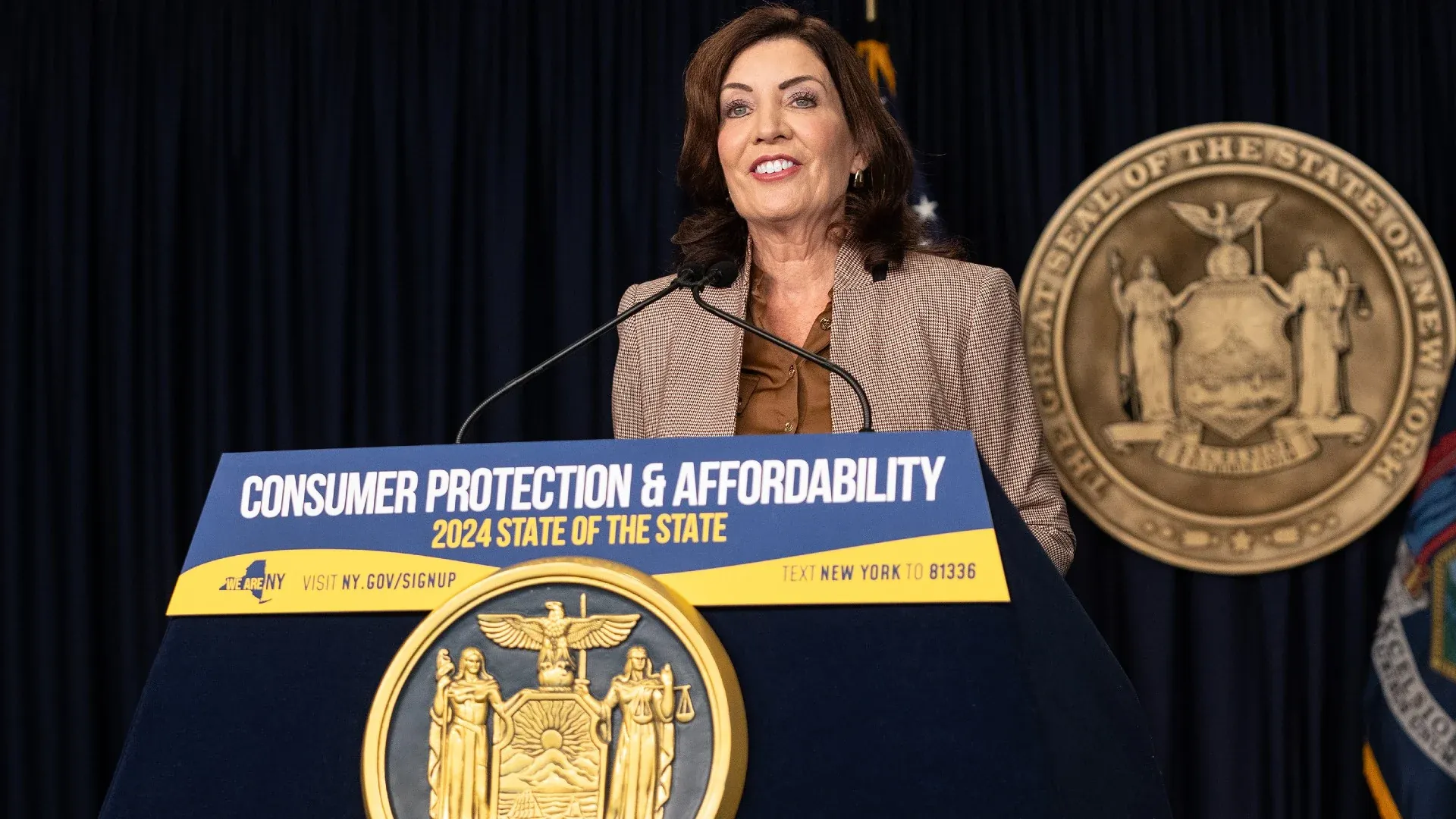New York Governor Kathy Hochul unveiled an ambitious consumer protection and affordability agenda on January 2, 2024. During her press conference, she highlighted the proposed measures aimed at bolstering consumer safeguards against unfair business practices.
Additionally, she emphasized the state’s commitment to establishing pioneering regulations for the Buy Now Pay Later loan industry.
The Governor has made a commitment to enact the first significant expansion of New York consumer protection laws since 1980. The aim is to address the issue of “predatory” business practices and “exploitative tactics” that negatively impact consumers.
The Governor specifically mentioned student loan servicers and debt collectors as examples of consumer financial services companies that should be subject to stricter legal regulations.
Governor Hochul has also pledged to pursue “more robust regulatory safeguards” for Buy Now Pay Later (BNPL) transactions. BNPL transactions provide customers with an alternative method of making online and other purchases, allowing them to defer full payment at the time of the transaction.
Typically, customers can pay for their purchases in a few installments over a short period, without incurring any finance charges. However, there may be a late fee if payments are missed. The press release that accompanied the Governor’s statement highlights the following:
Governor Hochul is set to introduce legislation that will mandate Buy Now Pay Later providers to obtain a license in order to operate within the state. Additionally, the New York State Department of Financial Services will be authorized to propose and implement regulations for this rapidly expanding industry.
As more New Yorkers opt for Buy Now Pay Later loans as a cost-effective alternative to traditional credit options for both everyday and significant purchases, these measures aim to establish robust safeguards.
The legislation and regulations will encompass various aspects, including disclosure requirements, dispute resolution and credit reporting standards, limits on late fees, consumer data privacy, and guidelines to prevent dark patterns and mitigate excessive debt accumulation.
New York Attorney General Letitia James has echoed Governor Hochul’s remarks and expressed her concerns about certain consumer industry sectors that may engage in unfair treatment towards customers. In particular, she highlighted the actions of student loan marketers, who she alleged are directing borrowers towards more costly loans.
During her State of the State address on January 9, 2024, Governor Hochul reiterated her commitment to strengthening consumer protection laws in New York. It is expected that the Governor will advocate for the passage of two companion bills that were introduced in the New York legislature in 2023.
These bills, A. 7138 and S. 795, may undergo updates to align with the Governor’s 2024 agenda. As we previously discussed in our blog, these bills aim to prohibit unfair and abusive practices, expand and establish new private rights for consumers and small businesses, and enhance the enforcement authority of the New York attorney general.
The two bills mentioned earlier were left unresolved when the New York legislature adjourned last year. However, they have now been reintroduced and referred to legislative committees. On January 3, 2024, A. 7138 was referred to the Assembly Codes Committee, while S. 795 was referred to the Senate Consumer Protection Committee.
Governor Hochul, in her address on January 9th, emphasized the need for legislation governing BNPL.
While she did not provide detailed information about the potential BNPL statute, she expressed concerns that BNPL can entice customers to overspend. This may indicate a potential requirement for BNPL providers to verify the customer’s ability to pay.
We will keep a close eye on any significant changes and keep you informed about the potential impacts of this proposed legislation, should it be introduced or modified.
If passed in its current form, we see these bills as having a wider scope and being more severe than Section 17200 of the California Business and Professions Code.

